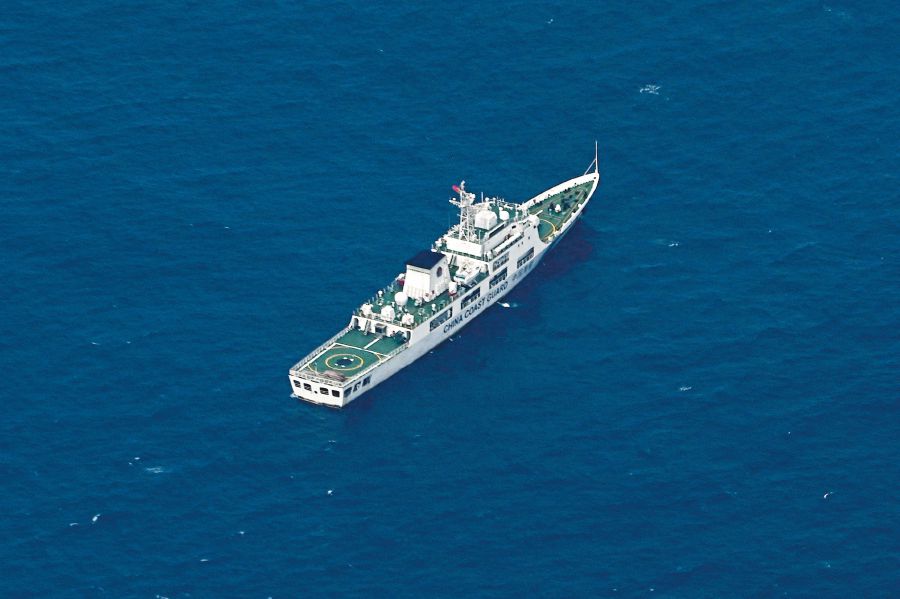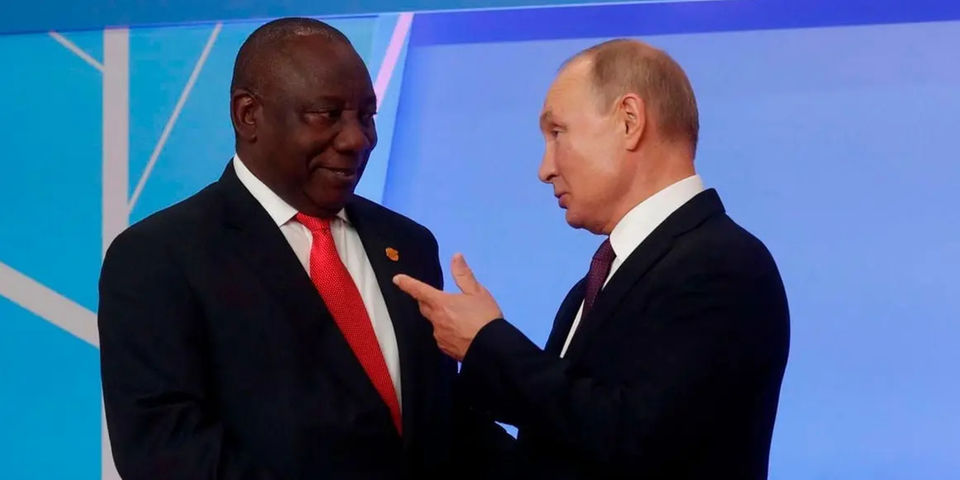‘The Chrysanthemum and the Sword’ of US Culture
The rejoicing in Taiwan at the confrontations between China and the U.S. misconstrues the U.S. as the patron saint of American-style democracy, necessarily honor-bound to come to Taiwan's defense. But in the middle of such waves of jubilation, cooler heads prevail, reminding everyone that the U.S. is not to be trusted too readily, on account of its poor track record of treachery and betrayal of allies in international affairs, such as diplomacy and military matters.
The U.S. is interpreted in completely different ways on either side of the Taiwan Strait, and each side uses its interpretation to suit its own needs. But when all is said and done, what is the U.S., really? And how should it be seen in a more realistic light? An overview.
With the above in mind, the way the U.S. formerly viewed Japan can be used as a reference. Before World War II, the average height of the Japanese was no more than 4 feet, 11 inches, but at the beginning of the war, they repeatedly beat the taller Americans into retreat. Why Japan should have had such fighting prowess has sparked discussion among official and academic circles in the U.S. Sun Tzu tells us that "If you know the enemy and know yourself, you need not fear the result of a hundred battles," so it is only by truly understanding the Japanese that the U.S. would have been able to stand undefeated. Ultimately, it was "The Chrysanthemum and the Sword," a study of national character traits by psychological anthropologist Ruth Benedict that gave Americans a deeper understanding of the type of enemy they were facing, through Benedict's in-depth analysis of the duality of the Japanese personality.
The titular chrysanthemum is a reference to the refined elegance of the Japanese when drinking sake and admiring chrysanthemums, at a time when the Japanese were known at poets; whereas the sword refers to the ruthlessness of the Japanese, as though they were homicidal maniacs,when confronting their enemies.
"The Chrysanthemum and the Sword" goes a certain distance toward interpreting Japanese duality; of course, if one really goes deeper into Japan, the sword can also refer to kendo or bushido, its cultural connotations going far beyond Benedict's characterization. But even so, "They Chrysanthemum and the Sword" still provides some insight into two aspects of Japanese behavior, so that, to Americans, they are no longer simply weird and incomprehensibly alien.
The incisiveness of "The Chrysanthemum and the Sword" is useful any way one wishes to look at the U.S. As far as the "chrysanthemum" is concerned, the U.S. has announced its pursuit of the moral high ground in terms of the defense of human rights, as shown in the Bill of Rights and Four Freedoms, and although there are still many historical issues to be resolved, overall developments are indeed heading in the right direction. Beyond its Constitution, American politics contains conventions established by the Founding Fathers that demonstrate contemplation of the possible alienation of power. This, coupled with the development of academia and the flourishing of culture, makes its impossible not to see the existence of the U.S. in a positive light, and all of these are of fundamental significance to human development. Many people with experience of the U.S. have firsthand knowledge of the sweet scent of the "chrysanthemum" in American culture, and they take it as a given that the U.S. is the place to be.
However, seen as groups, and as the history of Western exploration shows, there is a strict dichotomy between Chinese and non-Chinese peoples, and the safeguarding of one's own developmental interests is a moral imperative that brooks no compromise. The extension of this situation to the national level makes "America First" an unchallengeable code of conduct, under which the protection of outsiders' rights is subordinated to matters of national interest. At this point in time, many view the U.S. as egregiously selfish, untrustworthy, short-sighted and forgetful. Some people here see the U.S. as a great power, its self-identity fashioned under the sign of the "sword," and naturally consider it devious — but justifiably so!
From the individual to the state, from the prescriptive value of life to the descriptive interests of the nation, from the in-group to the out-group, the U.S. has two sides to it, and in any consideration of the U.S., one cannot have the one without the other. To learn from the U.S., one must learn from the "chrysanthemum," and to defend against the U.S., one must defend against the "sword." Nowadays, though, the mainstream on either side of the Taiwan Strait is skewed toward the strengths of both the chrysanthemum and the sword. In Taiwan, when we go all out in glorifying the U.S., we naturally lose our point of reference; on the mainland, when they recklessly belittle the U.S., they allow themselves to become mired in discursive embarrassment. The result of this has been a collective deepening of the conflicts between the two sides of the Taiwan Strait.
These two aspects are often observed in human nature as they are in countries and cultures, but what has happened to these two aspects when it comes to the strait is a question for our times.
The author is a cultural scholar


